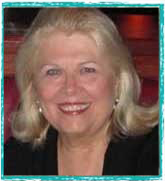
I was 54 years old before I heard the words, “I love you,” from my dad. I don’t remember ever hearing “I love you” from my mother. I know this was not easy for my father to say. He probably thought about it a long time before he got the courage to say these three little words. Some of you would be astonished that saying “I love you” to your daughter would be so difficult. Others would completely understand. The reasons why I know it took some thoughtful planning is that, first, I accidently found his script by the phone and, second, it took me decades before I had the courage to first initiate these words myself to my dad.
By most people’s standards it would be considered that I came from a “good” family. My parents were hard working, we went to church every Sunday, ate dinner together and went through the motions of what looked like a loving family. We did not have the problems that many families endure such as poverty, alcohol and drug addiction, molestation, and serious child abuse. Nevertheless, I did not feel loved.
Why did I feel so alone and unloved by my family? How did these feelings of being unlovable determine the choices I made for my future and how I interacted with others? These are questions I asked myself as I grew into adulthood. It was only when I had children of my own that I understood how difficult it was to be a good parent and raise children who felt loved and supported.
It took me many years to actually accept that my parents loved me and that they did the best they could with what they knew about parenting. It was easy to be loving and affectionate to my infant sons, but as they grew older I noticed that I wasn’t giving as many hugs and kisses. It was then that I made a conscious decision to tell my children that I loved them, and that I was proud of them and to use encouraging words instead of the discouraging messages that I received as a child.
As I participated as scout leader, team mom, a pre-school teacher or a member of a therapy group, I learned that so many of our social problems are derived from a low self worth. I am a survivor but many of our children are not as fortunate as I. Low self worth is prevalent across all social, economic groups.
Yes, I am fortunate. After several failed relationships I experienced a loving, supportive relationship with my husband, Peter Lucker. Before my husband died, we spoke about creating a nonprofit to help children experience self-love. His encouragement and support has made a dream a reality. URWorthIt!® is his legacy
Diane London
Founder & Executive Director

